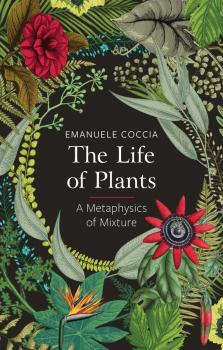Emanuele Coccia
Список книг автора Emanuele CocciaMetamorphoses
We are all fascinated by the mystery of metamorphosis – of the caterpillar that transforms itself into a butterfly. Their bodies have almost nothing in common. They don’t share the same world: one crawls on the ground and the other flutters its wings in the air. And yet they are one and the same life. Emanuele Coccia argues that metamorphosis – the phenomenon that allows the same life to subsist in disparate bodies – is the relationship that binds all species together and unites the living with the non-living. Bacteria, viruses, fungi, plants, animals: they are all one and the same life. Each species, including the human species, is the metamorphosis of all those that preceded it – the same life, cobbling together a new body and a new form in order to exist differently. And there is no opposition between the living and the non-living: life is always the reincarnation of the non-living, a carnival of the telluric substance of a planet – the Earth – that continually draws new faces and new ways of being out of even the smallest particle of its disparate body. By highlighting what joins humans together with other forms of life, Coccia’s brilliant reflection on metamorphosis encourages us to abandon our view of the human species as static and independent and to recognize instead that we are part of a much larger and interconnected form of life.
The Life of Plants. A Metaphysics of Mixture
We barely talk about them and seldom know their names. Philosophy has always overlooked them; even biology considers them as mere decoration on the tree of life. And yet plants give life to the Earth: they produce the atmosphere that surrounds us, they are the origin of the oxygen that animates us. Plants embody the most direct, elementary connection that life can establish with the world. In this highly original book, Emanuele Coccia argues that, as the very creator of atmosphere, plants occupy the fundamental position from which we should analyze all elements of life. From this standpoint, we can no longer perceive the world as a simple collection of objects or as a universal space containing all things, but as the site of a veritable metaphysical mixture. Since our atmosphere is rendered possible through plants alone, life only perpetuates itself through the very circle of consumption undertaken by plants. In other words, life exists only insofar as it consumes other life, removing any moral or ethical considerations from the equation. In contrast to trends of thought that discuss nature and the cosmos in general terms, Coccia’s account brings the infinitely small together with the infinitely big, offering a radical redefinition of the place of humanity within the realm of life.



